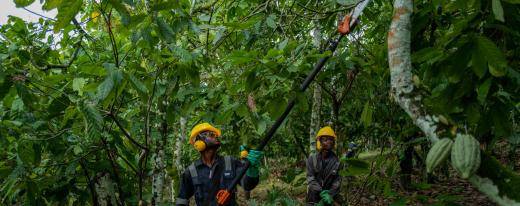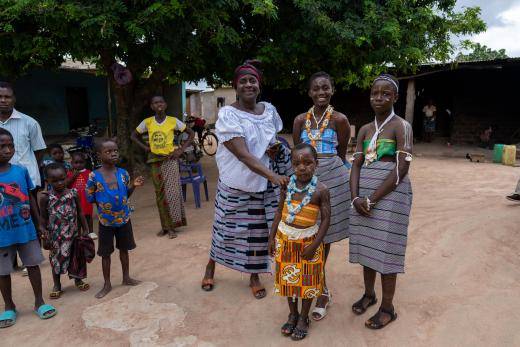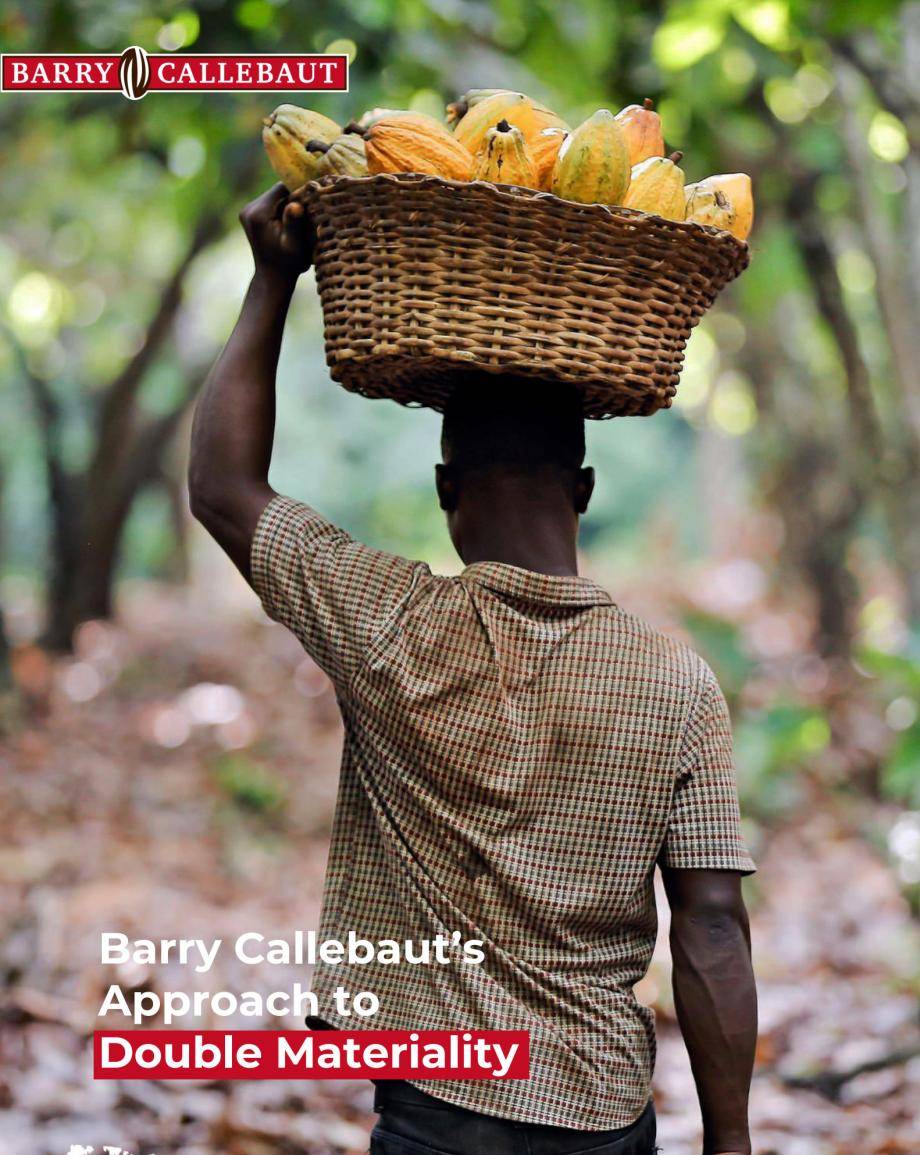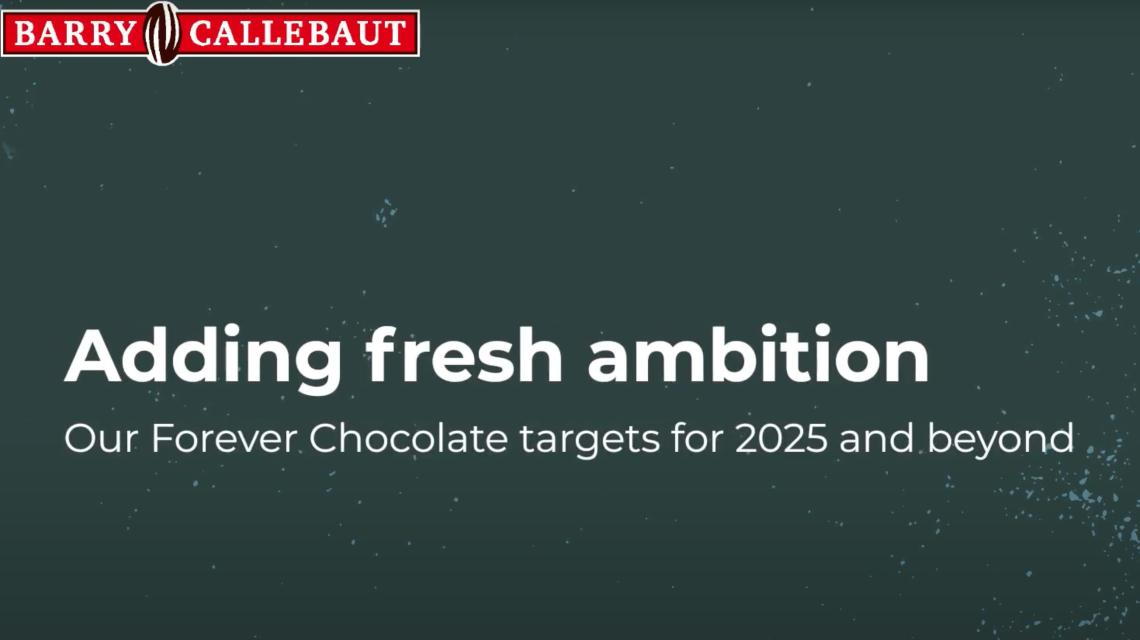That's what Forever Chocolate is all about...

That's what Forever Chocolate is all about...

Forever Chocolate is our plan to make sustainable chocolate the norm. Launched in 2016, the Forever Chocolate targets for 2025 are unique in terms of ambition in the cocoa and chocolate industry. In 2023 we presented our sharpened targets adding new measurable targets for 2030 and beyond.
Forever Chocolate is focusing on four pillars,
- Prospering Farmers
- Human Rights
- Thriving Nature
- Sustainable Ingredients
addressing the material challenges in the cocoa and chocolate supply chain.
-

Prospering Farmers
By 2025, 500,000 cocoa farmers in our supply chain will have been lifted out of poverty. By 2030, we will have mobilized key stakeholders around a transformative cocoa farming model generating living income. -

Human Rights
By 2025, our entire supply chain will be covered by Human Rights Due Diligence, remediating all child labor cases identified. By 2030, the farming communities we source from are empowered to protect child rights. -

Thriving Nature
By 2025, we will be forest positive. By 2030, we will have decarbonized our footprint in line with global efforts to cap global warming at 1.5 degrees Celsius. By 2050, we will be a net zero company. -

Sustainable Ingredients
By 2030, we will have 100% certified or verified cocoa and ingredients in all of our products, traceable to farm level.
We report every year on the progress of time-bound, measurable targets, and these reports are verified by an independent, third-party assurance provider. Our efforts and impact are also regularly recognized by independent organizations.
We are committed to driving long-term systemic change for a sustainable cocoa supply chain, with the support of our customers and to the benefit of all stakeholders.
For Forever Chocolate to become a reality, public intervention is required to drive structural change beyond Barry Callebaut’s direct supply chain. An enabling policy environment and government action in origin countries is essential to address the issue of traceability, rural infrastructure development and proper enforcement of national policies and legislation.
Defining leadership beyond targets
Our approach combines ambitious targets, thought leadership, customer solutions, and operational excellence.
- Thought leadership: We are committed to leading by example and providing valuable insights through, for example, the release of our White Paper which underpins our vision for a transformative approach to improve the existing cocoa farming model in Côte d'Ivoire and, more broadly, across West Africa.
- Customer solutions: Our customers are our priority and we have developed key flagship programs that provide innovative solutions tailored to their needs.
- Operational excellence: This driven by our 1,600+ colleagues in cocoa-origin countries, who are the backbone of our organization. As the largest supplier of sustainable cocoa products and chocolate, we excel across the entire supply chain, scaling key activities with precision.

Our approach to materiality
As sustainability priorities evolve, we regularly update our ESG materiality assessment to align with stakeholder expectations and industry dynamics. Our 2023 assessment highlights five key areas: supply chain traceability, climate and energy, biodiversity, workers in the value chain, and affected communities. These topics reflect the priorities identified by our stakeholders and guide our 'Forever Chocolate' strategy.
